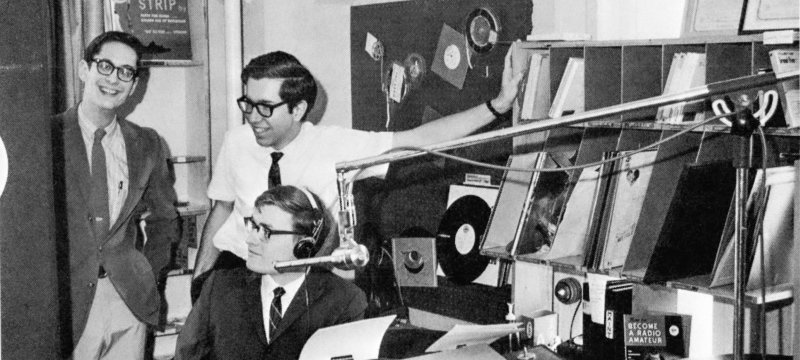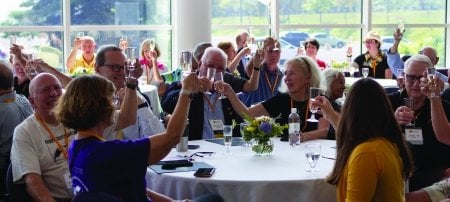In April 1968, Michigan Tech’s beloved “wiggle,” WGGL 91.1 FM, began broadcasting from the upper floors of Sperr Hall. With just 10 watts of power, its signal barely reached beyond campus. For Stan Smart '69 (BS Business Administration), the station’s first student manager, those early days marked the beginning of a journey that would not only shape his college experience, but also his career.
The Birth of “Wiggle”
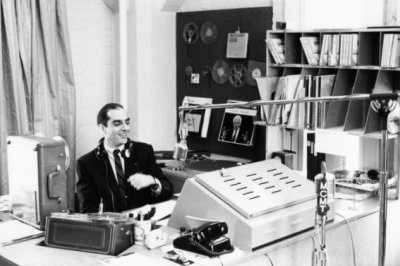
The story of WGGL began with a spark of inspiration from Joseph Kirkish, a dedicated professor in the humanities department and passionate advocate for the arts and media. Kirkish dreamed of a station that would not just entertain but also educate and connect the community. For students like Smart, this vision became a hands-on opportunity to build something meaningful.
“Joe had been trying to start an FM station at the University for years,” Smart said. “I remember when he made a comment about radio one day, and that caught my ear. I had some knowledge about working with the Federal Communications Commission (FCC) from my amateur radio experience, so I spoke with him after class. That was the spark, and we just made it work.”
A Towering Challenge
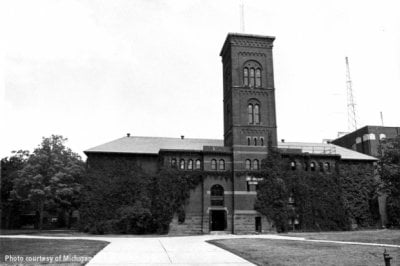
As WGGL’s first manager, Smart was part of a small but resourceful team. From obtaining FCC broadcast approval to assembling equipment, they overcame countless obstacles, but none more challenging than handling the arrival of the station’s centerpiece: a 100-watt transmitter weighing over 800 pounds.
“It was as big as a small car,” Smart recalled with a laugh. “We had to disassemble it and haul it up to the top floor of Sperr Hall, piece by piece. Then came the fun part when we had to put it back together. We didn’t have fancy resources, but we had determination and a bunch of engineers. Seeing that transmitter in place and that red radio tower mounted atop Sperr Hall—that was exciting. It was like, ‘We did this, and we’re just students!’”
From Campus Radio to Career
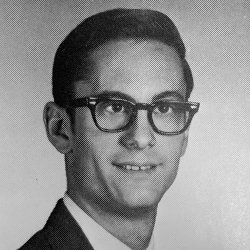
The new transmitter and 170-foot radio tower marked a turning point for WGGL. With increased broadcast power, the station quickly expanded and moved to a six-room complex in the basement of the Academic Office Building. Though for Smart, WGGL was more than just a radio station.
“That first year at Tech was tough,” he admitted. “You’re far from home and could only really go back during the holidays. But working on the station made me feel like I really belonged. It gave me purpose.”
The experience also provided Smart with local job opportunities that began to shape his career. “I started working weekends at WHDF in Houghton, and in the summer I worked over at WMPL in Hancock,” Smart said. “Getting experience on campus with WGGL led me to take those jobs. It was all experience—and it gave me the confidence to keep going.”
Smart carried that confidence into a career in broadcasting and business, managing radio stations and owning a software company. He credits Michigan Tech for fostering his resilience and can-do attitude.
“It’s a growth thing,” Smart said. “You come in as a young person, thinking you know what you want to do. When campus radio came around, and with the group we had involved, it was exciting. All that gave me the confidence that when I graduated, I had this ‘You have to hire me’ attitude.
"One of the great things about Tech being up here in the middle of nowhere, especially back then, was that if you can make it here, if you can do this, then you can do anything."
A Lasting Legacy
Today, WGGL 91.1 FM is owned and operated by Minnesota Public Radio and continues to broadcast a mix of NPR news-talk and classical music to Copper Country listeners. Thanks to the contributions of Professor Kirkish and students like Smart, Jim Harvey '70, and Jim Lienau '71, WGGL remains a cherished part of the community more than 50 years later.
Michigan Technological University is an R1 public research university founded in 1885 in Houghton, and is home to nearly 7,500 students from more than 60 countries around the world. Consistently ranked among the best universities in the country for return on investment, Michigan's flagship technological university offers more than 120 undergraduate and graduate degree programs in science and technology, engineering, computing, forestry, business, health professions, humanities, mathematics, social sciences, and the arts. The rural campus is situated just miles from Lake Superior in Michigan's Upper Peninsula, offering year-round opportunities for outdoor adventure.

